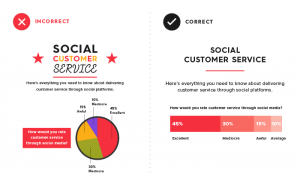In this age of diminishing trust, contributor Joe Hyland argues it’s time for marketing leaders to shift their emphasis.

I don’t think it’s an exaggeration to say that for those of us marketing, selling or consuming SaaS technology (i.e., just about everyone), Salesforce founder Marc Benioff is a pretty important guy. As the Godfather of the subscription model, he’s a symbol of rapid scale and arguably the catalyst for the entire martech industry. There’s simply no other CEO out there who embodies the “race to $100M annual recurring revenue” zeitgeist more than Benioff.
So, when recent headlines from the World Economic Forum reported the Salesforce founder’s main talking point was that trust should be more important to a business than growth, it got my attention.
Too much hyperbole has compromised trust
Silicon Valley, and the many startups founded, funded and exited there, have long been admired for their motto of “move fast and break things.” Now, we’re starting to see a backlash against this hype-driven mindset and a correction toward a more rational, realistic one.
Coinciding with Benioff’s recent rallying cry for honesty, Edelman released its annual Trust Barometer report (PDF), which is based on the idea that trust’s importance, and the current crisis, goes way beyond one CEO’s thought leadership platform. According to the 2018 Edelman report, just 43 percent of the US general public reports trusting in institutions (including businesses, NGOs, governments and the media), despite CEOs’ ranking trust as their top priority.
So it’s worth asking: Is the same force that’s bursting Silicon Valley’s bubble going to change how we communicate as brands? It certainly should.
As CMOs with an endless number of digital channels at our disposal, it’s important that we take a step back and evaluate media not just for their reach, but for their ability to build credibility and earn trust from our audience. The rise of “fake news” has only made it more difficult than ever to earn the public’s trust.
Just look back at the biggest marketing stories over the past two years, and you’ll see the rise of a central theme that sheds doubt on media that go for scale rather than making human connections. From P&G’s CMO calling digital advertising’s bluff to the The New York Times’s expose on social media’s black market, we’re seeing movement away from spray-and-pray toward authentic engagement.
Earn trust back through human storytelling
So, in a world where texting is the primary form of communication, how do we create human connections? Through media that offer us a way to tell stories that empathize and relate to the experiences of our audience.
Take, for example, the case of Goldman Sachs. After the financial crisis, Goldman decided they could no longer remain a closed-door firm and they had to change public perception. So, they ingeniously turned to podcasting, giving the public access to their expertise and the opportunity to hear a real voice share their perspective. Now, their podcast gets 250,000-plus downloads monthly, and it is one of the main strategies their CMO cites as helping turn their brand around.
By having total control over how a story is told, you have the power to influence your audience in ways the written word just can’t. And it’s just a more human way of communicating that’s unique to you. So pull back the hype, tell authentic stories and voice the emotional honesty of your brand. Then, once you’ve earned your audience’s trust, the growth will follow.
Opinions expressed in this article are those of the guest author and not necessarily Marketing Land. Staff authors are listed here.
Marketing Land – Internet Marketing News, Strategies & Tips
(72)








